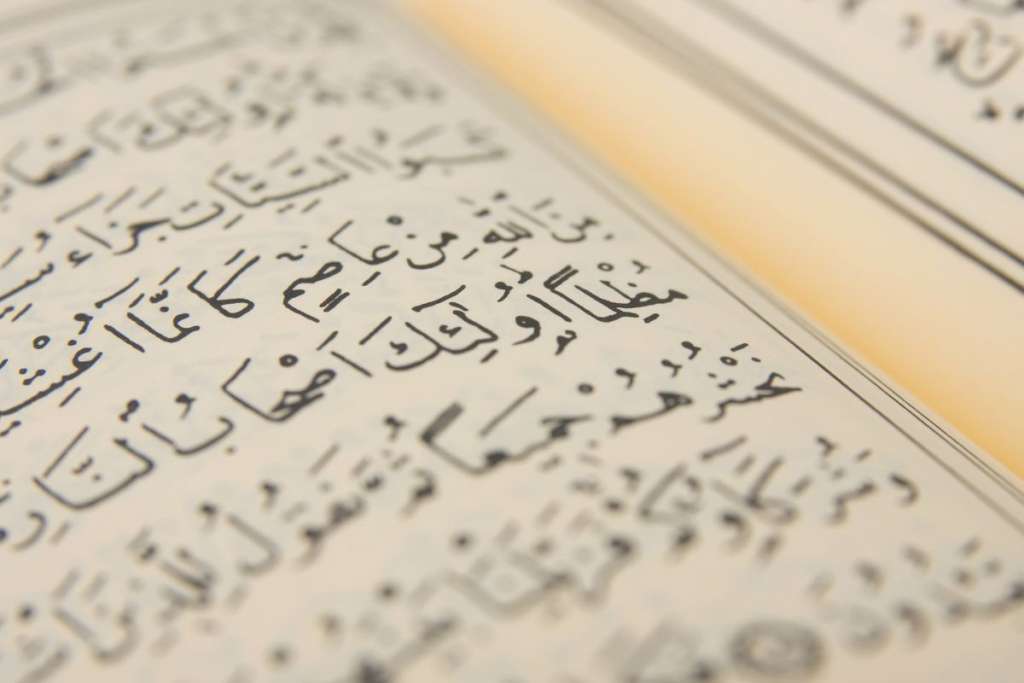The question “when was the quran compiled” is a question that comes to the mind of any Muslim person, and it piques their interest.
The holy book of Islam, the Quran, was written over the course of around 23 years. Beginning in the year 610 CE (Common Era) and ending in the year 632 CE.
The Prophet Muhammad was alive when this compilation was completed.
Prophet Muhammad received the Quran’s revelations from the angel Gabriel. Over the course of his prophetic mission, he received these revelations in Arabic.
The Prophet’s companions memorized and recorded them on a variety of papers, including parchments, palm leaves, and pieces of bone.
The third Caliph of Islam, Uthman ibn Affan (may Allah be pleased with him), oversaw the official compilation of the Quran into a single written volume.
To prevent potential discrepancies in the copies of the Quran that were dispersed over various countries, Uthman understood the necessity for a consistent version of the Quran.
On the basis of the materials gathered and the recollections of individuals who had remembered the complete Quran during the lifetime of the Prophet Muhammad, he appointed a committee of scholars to produce multiple copies of the Quran.
Any Muslim has a lot of other inquiries running through their heads like:
Any muslim has a lot of other inquiries running through their heads like;
- When was the Quran written and who wrote it?
- How was the Quran revealed and compiled?
- What are the stages of writing the Qur’an?
Gain a much deeper understanding of the Quran with our Quran Online Courses for Muslims of all levels and around the world today. Reserve your spot here today!
When was the Quran written and who wrote it?

We are unable to determine who wrote the first Quran. That’s because the Qur’an was not authored by a single person who was sent down from God to creatures.
The Quran was not “written” by a single human author in the traditional sense.
Rather, it was revealed orally to the Prophet Muhammad, who then conveyed it to his companions and followers. The companions, known as the Sahabah, memorized and recorded the revelations on various materials. These included parchment, bones, and palm leaves.
So the answer to the question of when was the quran compiled is that the compilation of the Quran into a single written text took place after the death of Prophet Muhammad.
The third Caliph of Islam, Uthman ibn Affan, is traditionally credited with overseeing the compilation of the Quran into a standardized written text around 650 CE.
This compilation aimed to ensure the accuracy and consistency of the Quranic text across the growing Muslim community. It’s important to note that the Quran’s content, however, it
remained unchanged throughout this process, as it is believed to be the unchanged and unaltered word of God
Gain a much deeper understanding of the Quran with our Quran Online Courses for Muslims of all levels and around the world today. Reserve your spot here today!
How was the Quran revealed and compiled ?
The revelation and compilation of the Quran are central aspects of Islamic history and theology. Here’s a brief overview of how the Quran was revealed and compiled:
Muslims hold that the Quran was revealed to the Prophet Muhammad by the angel Gabriel (Jibril in Arabic). And that it is the exact, literal word of God (Allah).
Approximately 23 years passed between the beginning of the revelation process in 610 CE, when Muhammad was about 40 years old, and his death in 632 CE.
Muhammad described the revelations as a series of contacts with the angel Gabriel. During which he was given instructions and messages from God.
These revelations covered a wide range of topics, including religion, ethics, social issues, rules of law, and recommendations for proper behavior.
In turn, after memorizing them, Muhammad would share these revelations with his companions, who would orally share them with others.
The freshly revealed scriptures would occasionally be recited by the Prophet to a group of his adherents. They would subsequently memorize and spread them.
The Oral Transmission of the Quran
The Compilation of the Quran was not collected into a single written document during the lifetime of Muhammad. Instead, oral transmission was the main method of preservation. The Prophet’s associates recorded the revelations on various objects, including parchment, bones, and palm leaves, and some also memorized them.
It became necessary to gather the scattered written and oral accounts of the Quran into a single, unified book after the Prophet passed in 632 CE. That’s in order to assure its preservation and avoid any potential contradictions. This collection was created during the reign of Uthman ibn Affan, the third Caliph.
Based on the resources at hand and the recollections of individuals who had memorized the complete Quran, Uthman ordered the preparation of an official written copy of the Quran.
He formed a group of academics to oversee this procedure. The compilation aims to guarantee the reliability and uniformity of the Quranic text throughout the quickly growing Muslim population.
Copies of the standardized text were distributed throughout the Islamic realm after compilation was finished. These copies served as the originals from which all other copies were produced and sent out.
Gain a much deeper understanding of the Quran with our Quran Online Courses for Muslims of all levels and around the world today. Reserve your spot here today!
What are the stages of writing the Qur’an?

There are three stages of compilation of quran, each contributing to the preservation and dissemination of the holy scripture. While the Quran was initially revealed orally to the Prophet Muhammad, it was eventually compiled into a standardized written text. The three main stages of the compilation of the Quran are:
First stage: Oral Transmission During the Prophet Muhammad’s Life:
The Prophet Muhammad received the Quran orally over the course of about 23 years.
The Prophet would receive revelations from the angel Gabriel during this period. Which he would then recite to his companions and followers.
The companions would then commit the lyrics to memory and spread them orally. This phase was essential for keeping the Quran true to itself and ensuring that it was accurately transmitted.
Second Stage: Compilation of the Quran during Abu Bakr’s Caliphate:
After the Prophet Muhammad passed away in 632 CE, some of his companions who had memorized the Quran were killed in battle. This led to worries about the possible loss of Quranic knowledge.
Abu Bakr, the first Caliph of Islam, commissioned the creation of a written document after realizing the value of maintaining the Quranic teachings. A scribe named Zaid ibn Thabit was given the duty of compiling the dispersed written sources and oral traditions of the Quran into a single copy. Zaid had memorized the Quran.
This collection functioned as a master copy for reference and preservation but was not intended for general distribution.
Third Stage: Standardization and compilation of quran in the time of hazrat usman:
Around 650 CE, the third Caliph, Uthman ibn Affan, oversaw the most major and well-known compilation of the Quran. By this time, Islam had spread to a number of locations, and there were a few minor changes in how the verses of the Quran were recited.
To avoid inconsistencies and guarantee the unity of the Muslim community, Uthman understood the necessity of a standardized text.
Uthman appointed a committee of scholars, including Zaid ibn Thabit, to create a unified written version of the Quran.
This version was based on the master copy compiled during Abu Bakr’s time and the oral traditions passed down from the companions.
Copies of this standardized text were then sent to different regions of the Islamic empire. Previous copies of the Quran were ordered to be destroyed to prevent confusion.
These three stages of compilation ensured the preservation, standardization, and widespread dissemination of the Quranic text as it is known today.
Muslims believe that the Quran has been preserved without alteration since its revelation and that it serves as a timeless and unchanging source of guidance.
Ready to dive deeper into the remarkable stages of Quranic compilation? Explore the intricate process that safeguarded the Quran’s authenticity and made it an unwavering guide for millions. For a closer look at this extraordinary journey:
If you found this article helpful, please share it. If you have any questions or comments, please drop us a comment below and we’ll be more than ready to help you.




